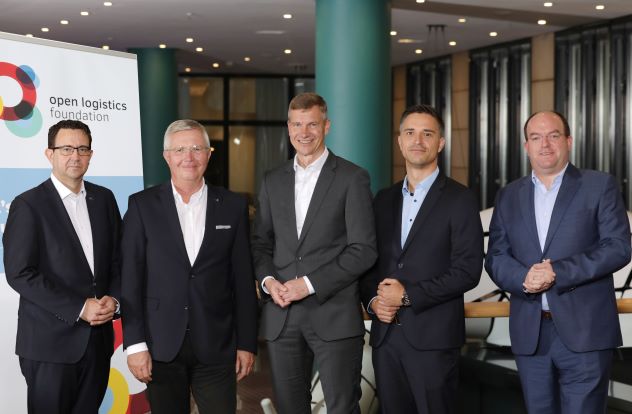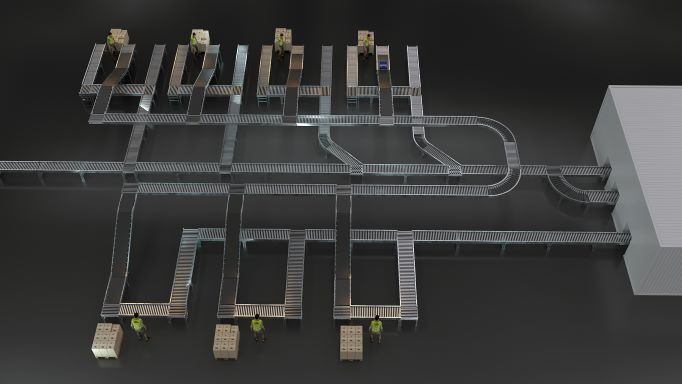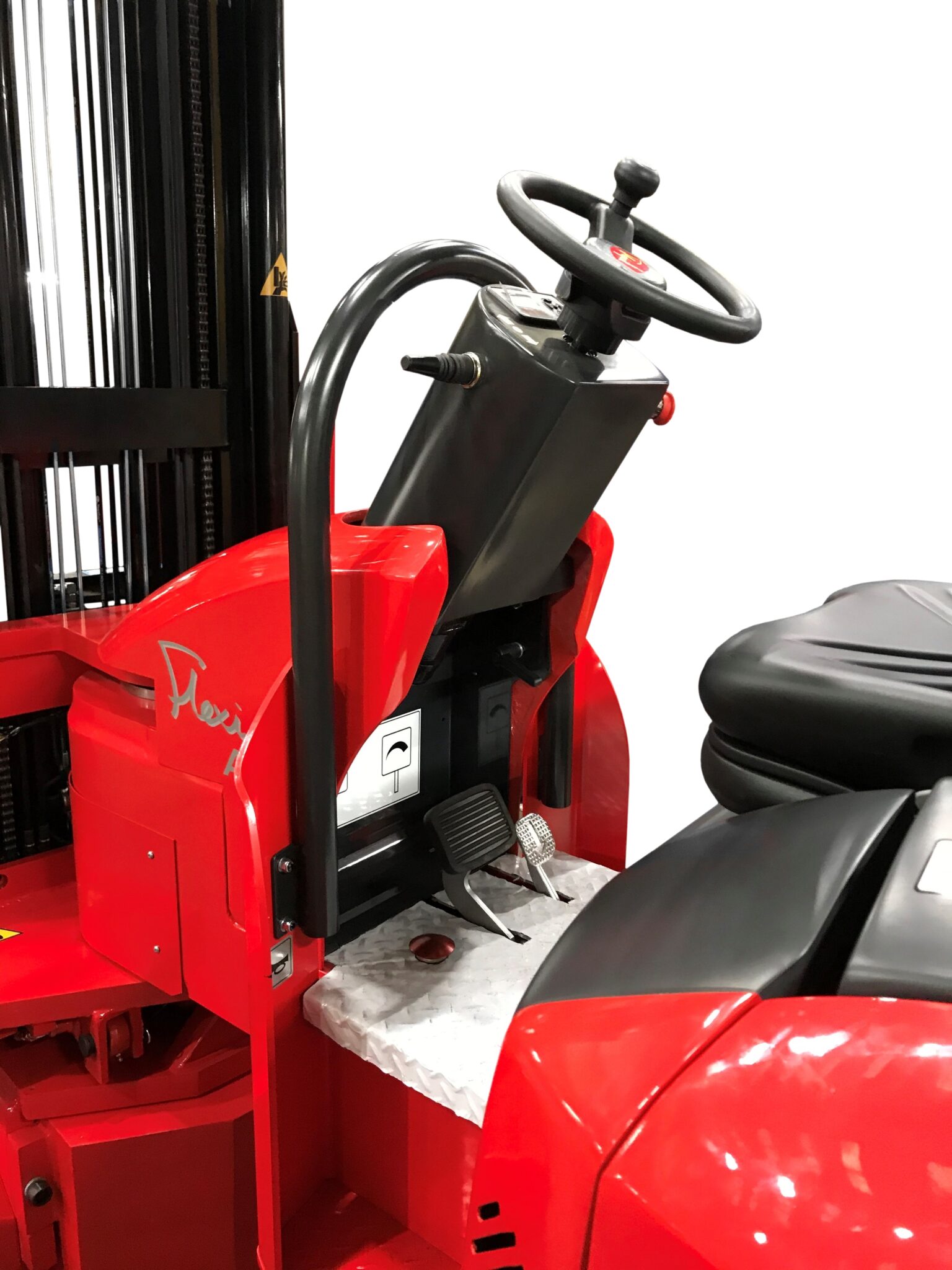Dachser, DB Schenker, duisport and Rhenus have established the Open Logistics Foundation. The purpose of the non-profit foundation is to build a European open-source community aiming to promote digitalisation in logistics and supply chain management based on open source and standardise logistics processes through de facto standards. Not only is a technology initiative like this unique in logistics to date, the founding members are also taking on a pioneering role as to the future topic of open source.
“We want to drive the digitalisation of logistics forward together. That is why open source is an important success factor for the entire logistics industry and, at the same time, a driver for harmonised processes in digital supply chains. We consider the Open Logistics Foundation to be the first step towards a platform economy based on European legal standards and values. It is both a beginning and an appeal to the logistics sector to think of technology and processes together and actively participate in the open-source community,” the founding members declared in a joint statement. Now it is about anchoring open source in the logistics sector and implementing the internal structures to work with the corresponding hardware and software.
The foundation addresses all logistics-related companies and their IT developers. Through Open Logistics e.V., the funding association, which was also founded in Berlin, it is open to new members from all areas of logistics, ranging from industry, retail and services to freight forwarders and political organisations. Numerous companies already announced their participation in the funding association, including AEB, BLG Logistics Group, GS1 Germany, Lobster Logistics Cloud and the Bochum-based Setlog Holding, but also associations such as the Fraunhofer Gesellschaft zur Förderung der angewandten Forschung.
The core of the foundation’s work is the operation of the so-called Open Logistics Repository, a technical platform on which software and hardware interfaces reference implementations and components available as open-source under a free license (permissive license). All tools and components will be free of charge without restriction for commercial applications to promote broad acceptance within the logistics sector. Companies may use them, for example, to expand their platforms or to set up new products and business models faster.
The open-source approach guarantees an open standard for digitalising logistics processes while offering a significant degree of flexibility for individual customisation. Companies that use open source are usually more productive, reduce costs and prevent being tied to proprietary software. Another advantage is that the software solutions are not isolated, but all components are compatible, facilitating digital networking beyond company boundaries.
The main tasks of the foundation also include identifying collaborative projects to be included in the repository. It monitors the quality of the open-source software and guarantees neutrality in its development. Furthermore, it offers training for companies on how to work with the platform.
The set-up phase of the platform will take place in the coming year. In Berlin, some open-source projects have already been named, for example the first open-source digital consignment note (eCMR) as well as implementations for the digital load carrier exchange or the AGV interface VDA 5050. Further developments from the community will be added in the future.
On the foundation’s establishment, the board members were appointed. Jochen Thewes (Chairman), CEO of DB Schenker, Dr. Stephan Peters (Vice Chairman), Member of the Board of Rhenus, and Stefan Hohm (Vice Chairman), CDO of Dachser, were elected to the Executive Board. The Advisory Board is made up of Prof. Dr. Dr. h. c. Michael ten Hompel (Chairman), Managing Director of the Fraunhofer IML, and Markus Bangen, CEO of duisport, as well as Jakub Piotrowski CIO/CDO of BLG Logistics Group.
The Open Logistics Foundation was initiated by the Fraunhofer Institute for Material Flow and Logistics IML as part of its Silicon Economy research project, which is funded by the German Federal Ministry of Transport and Digital Infrastructure (BMVI) with €25m. More than 150 researchers are working on an open-source software and hardware infrastructure that enables companies to process their business operations in an automated way and to offer and use services and data securely across different platforms beyond company boundaries. The software and hardware created during the project duration until 2023 and the developments from the community Open Logistics Foundation will form the basis of the Open Logistics Foundation’s repository.
Statements
“If we want to digitise logistics successfully, we have to overcome silo structures. Hardware and software from open source can and will make a significant contribution to achieving this. The benefits are impressively simple: Everyone uses the same freight documents, for example, and everyone plans routes or offers tracking and tracing. In this respect, we want to jointly develop IT standards in logistics beyond company boundaries and make the results accessible to everyone. This open-source approach is intended to replace individual investments in the digitalisation of commodities. Every company will benefit from this.” Jochen Thewes, CEO of DB Schenker, Chairman of the Board of the Open Logistics Foundation
“Digitalisation is not an end in itself. It overcomes interfaces and pays off higher-level goals such as transparency, efficiency, and sustainability. Above all, however, it must also be economically feasible and successful on the market. 100 percent digital is not a dream, but our common future in more and more use cases. The open-source concept guarantees an open standard for digitalising logistics processes while offering a high degree of flexibility for individual adaptations. By founding the Open Logistics Foundation, we have laid the basis for the era of open source in logistics.” Dr. Stephan Peters, Member of the Board of Rhenus SE & Co. KG, Vice Chairman of the Open Logistics Foundation
“Intelligent logistics is based on high-performance IT systems. This principle has applied at Dachser for many decades and will certainly remain so. However, it hardly makes sense to program every line of code in a standard application yourself. This is neither economical nor does it provide a competitive advantage. On the contrary, quite often, it even prevents the pragmatic networking of partners and customers. Therefore, it is advantageous for all supply chain parties, if in the future, that selected software components are available to everyone free of charge as open-source elements and continuously updated via a neutral authority. Open source thus becomes another important competitive factor, and that is why we have supported the idea of the Open Logistics Foundation since the very beginning.” Stefan Hohm, Chief Development Officer (CDO), Dachser SE, Vice Chairman of the Open Logistics Foundation
“The logistics sector must become more software-driven to play a role in the forthcoming platform economy and to self-determine its future based on European legal standards and values. Digitisation is the goal, and open source is the key to taking all companies along this journey, regardless of size and sector. Dachser, DB Schenker, duisport and Rhenus have laid the basis with their donation of the non-profit Open Logistics Foundation. Now it’s a matter of what the logistics sector turns it into.” Prof. Dr. Dr. h. c. Michael ten Hompel, Managing Director of the Fraunhofer Institute for Material Flow and Logistics (IML), Chairman of the Advisory Board of the Open Logistics Foundation.
“After the presentation of the Open Logistics Foundation, it was clear to the Port of Duisburg very quickly that we would like to get involved. The primary goals of our commitment are an industry-wide dialogue, the identification of overarching challenges, and the creation of urgently needed standards to make cross-location collaboration technologically easier. The bundling of resources and topics offers us the unique opportunity to set de facto standards instead of creating further monoliths. The digitalisation of logistics can only be advanced by working together. The early involvement of all stakeholders creates important internal structures and also promotes the mutual exploration of existing needs and necessities as well as the identification of available resources.” Markus Bangen, Chairman of the Executive Board of Duisburger Hafen AG (duisport), Member of the Advisory Board of the Open Logistics Foundation
About the Foundation
The Open Logistics Foundation is a non-profit and operationally working foundation based in Dortmund that fosters open-source applications in logistics. The foundation’s primary purpose is to build a European open-source community to promote digitalisation in logistics and supply chain management based on open source and standardise logistics processes utilising de facto standards. The foundation operates the repository, a technical platform for open-source software (OSS) and hardware (OSH).
It makes interfaces, reference implementations and components available via open-source under a free license (permissive license). It monitors the quality and security of the open-source tools and guarantees neutrality in its development. The Open Logistics Foundation works based on European legal standards and values, it is independent and addresses IT developers and users from all areas of logistics.
The Open Logistics Foundation was initiated by the Fraunhofer Institute for Material Flow and Logistics (IML) as part of the “Silicon Economy” project. The founding members are Dachser, DB Schenker, duisport and Rhenus; other companies support the organisation. The foundation is open to further members through its funding association, Open Logistics e.V.











